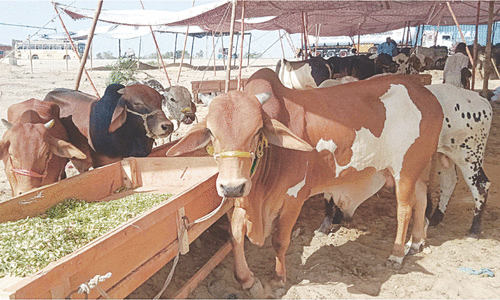ISLAMABAD: Commuters of Rawalpindi and Islamabad faced another nerve-wrecking traffic jam on the Islamabad Expressway and its link roads on Wednesday – the third in four days.
Unlike the previous two occasions when people protesting a fatal accident disrupted traffic, this time it was disruption in gas supply that brought people on the roads.
“Looks like disgruntled people are increasingly taking to the main arterial expressway to vent out their frustrations to the maximum effect,” said a motorist caught in Wednesday’s traffic jam.
Vehicles stranded from Faizabad to Zero Point, Khanna to Kural
Vehicles of all sorts piled up from Faizabad to Zero Point and Khanna to Kural. The traffic jam started melting after four hours.
Soon after the chaos started building up, police contingents, some in anti-riot gear, arrived. Their commanders urged the protesters to disperse but they asked for an assurance that full supply of gas will be restored.
A little over 200 residents of Dhoke Kala Khan, Sohan and Shakrial, majority of them women and children, were able to completely choke the traffic on the Expressway. On the previous two occasions the number of disruptive protesters was less and their demand was for the CDA to build a pedestrian bridge it had promised a year ago.
On Wednesday the protesters were chanting slogans against the government and Sui Northern Gas Pipelines Limited for the loadshedding of gas.
“What to say of preparing meals, the little gas they supply is not sufficient even to prepare tea for the family. There is no hot water and no warmth in our houses as geysers and heaters have gone cold without gas,” said a woman protester.
“Our children and men leave for school and duty without proper breakfast and find no meal when they return home on empty stomachs,” said another woman.
Ijaz Khan, a resident of Dhok Kala Khan, brought home an LPG cylinder to prepare meals, but it lasted just a week. “I belong to low-income group and cannot afford four cylinders in a month,” he lamented.
A couple, raising slogans at the highest pitch, explained that “we are using wood for cooking, and it fills our two-room house with smoke. We cannot open the window as it is winter and we have minor children.”
Stick-wielding young men stood in front and back of the protesters as they burnt tyres after the police sent to control them could not fulfill their demand that a senior official of SNGPL come and assure that normal gas supply would be restored.
They finally relented after the police and the administration succeeded in persuading them that they would try that gas is available to them 12 hours a day.
However, police said a complaint had been lodged with the Shahzad Town police and cases would be registered against the unruly protesters.
Published in Dawn, November 20th, 2014










































